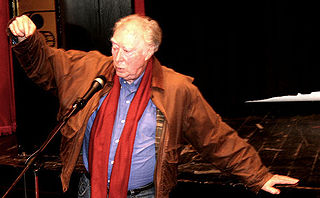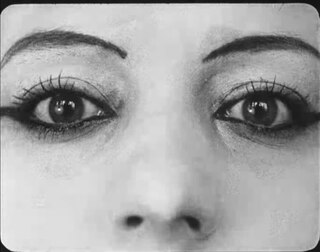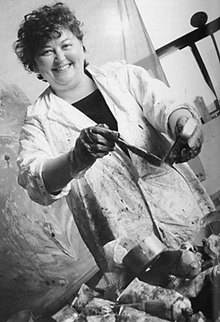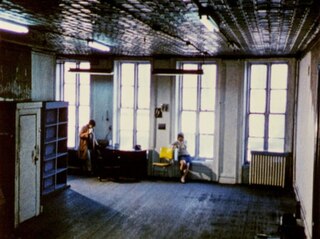Related Research Articles

Joseph Philippe Pierre Yves Elliott Trudeau was a Canadian lawyer and politician who served as the 15th prime minister of Canada from 1968 to 1979 and from 1980 to 1984. Between his non-consecutive terms as prime minister, he served as the leader of the Opposition from 1979 to 1980.

The October Crisis was a chain of political events in Canada that started in October 1970 when members of the Front de libération du Québec (FLQ) kidnapped the provincial Labour Minister Pierre Laporte and British diplomat James Cross from his Montreal residence. These events saw the Prime Minister Pierre Trudeau invoking the War Measures Act for the first time in Canadian history during peacetime.

William Norman McLaren, LL. D. was a Scottish Canadian animator, director and producer known for his work for the National Film Board of Canada (NFB). He was a pioneer in a number of areas of animation and filmmaking, including hand-drawn animation, drawn-on-film animation, visual music, abstract film, pixilation and graphical sound. McLaren was also an artist and printmaker, and explored his interest in dance in his films.

Margaret Joan Trudeau is a Canadian activist and the mother of Justin Trudeau, the 23rd and current prime minister of Canada. She married Pierre Trudeau, the 15th prime minister of Canada, in 1971, three years after he became prime minister. They divorced in 1984, during his final months in office. She is also the mother of the journalist and author Alexandre "Sacha" Trudeau, and Michel Trudeau. She is the first woman in Canadian history to have been both the wife and the mother of prime ministers. Trudeau is an advocate for people with bipolar disorder, with which she has been diagnosed.

The 1968 Canadian federal election was held on June 25, 1968, to elect members of the House of Commons of Canada of the 28th Parliament of Canada.

Michael James Aleck Snow was a Canadian artist who worked in a range of media including film, installation, sculpture, photography, and music. His best-known films are Wavelength (1967) and La Région Centrale (1971), with the former regarded as a milestone in avant-garde cinema.

Experimental film or avant-garde cinema is a mode of filmmaking that rigorously re-evaluates cinematic conventions and explores non-narrative forms or alternatives to traditional narratives or methods of working. Many experimental films, particularly early ones, relate to arts in other disciplines: painting, dance, literature and poetry, or arise from research and development of new technical resources.

Joyce Wieland was a Canadian experimental filmmaker and mixed media artist. Wieland found success as a painter when she began her career in Toronto in the 1950s. In 1962, Wieland moved to New York City and expanded her career as an artist by including new materials and mixed media work. During that time, she also rose to prominence as an experimental filmmaker and soon, institutions such as the Museum of Modern Art in New York were showing her films. In 1971, Wieland's True Patriot Love exhibition was the first solo exhibition by a living Canadian female artist at the National Gallery of Canada. In 1982, Wieland received the honour of an Officer of the Order of Canada and in 1987, she was awarded the Toronto Arts Foundation's Visual Arts Award. She was also a member of the Royal Canadian Academy of Arts.
Structural film was an avant-garde experimental film movement prominent in the United States in the 1960s. A related movement developed in the United Kingdom in the 1970s.

Wavelength is a 1967 experimental film by Canadian artist Michael Snow. Shot from a fixed camera angle, it depicts a loft space with an extended zoom over the duration of the film. Considered a landmark of avant-garde cinema, it was filmed over one week in December 1966 and edited in 1967, and is an example of what film theorist P. Adams Sitney describes as "structural film", calling Snow "the dean of structural filmmakers."
La Région Centrale is a 1971 experimental Canadian film directed by Michael Snow. The film is 180 minutes long and shot over a period of 24 hours using a robotic arm, and consists entirely of preprogrammed movements.
Back and Forth, also known as <--->, is a 1969 structural film by Canadian director Michael Snow. Shot in and outside a classroom at the Madison, New Jersey campus of Fairleigh Dickinson University, the camera pans and tilts with varying frequency.

Grant Munro LL. D. was a Canadian animator, filmmaker and actor. In 1952, he co-starred with Jean-Paul Ladouceur in Norman McLaren's Neighbours. His film, Christmas Cracker, was nominated for an Academy Award in 1965.
Angel is a 1966 experimental animated short directed by Derek May and produced by Guy Glover for the National Film Board of Canada.
New Film Makers is a Canadian experimental short film television miniseries which was broadcast on CBC Television in 1969.
John Kemeny was a Hungarian-Canadian film producer whom the Toronto Star called "the forgotten giant of Canadian film history and...the most successful producer in Canadian history." His production credits include The Apprenticeship of Duddy Kravitz, Atlantic City, and Quest for Fire.
Non-narrative film is an aesthetic of cinematic film that does not narrate, or relate "an event, whether real or imaginary". It is usually a form of art film or experimental film, not made for mass entertainment.
The Far Shore is a Canadian drama film, directed by Joyce Wieland and released in 1976. Wieland's first commercial narrative feature film after years of making experimental short films, The Far Shore is a romantic drama which borrows elements from the life and death of painter Tom Thomson.
Graham Coughtry, was a Canadian modernist figurative painter.
Artist on Fire is a Canadian documentary film, directed by Kay Armatage and released in 1987. The film is a portrait of Canadian feminist artist and filmmaker Joyce Wieland.
References
- 1 2 Jacob Siskind, "Joyce Wieland's Reason Over Passion at Loyola Experimental Film Festival". Montreal Gazette , July 4, 1969.
- 1 2 Barrie Hale, "A pure new film of a pure land". Toronto Star , July 19, 1969.
- ↑ Johanne Sloan, "Reason Over Passion 1968". Art Canada Institute.
- ↑ Sara Angel, "True Patriot Love: Revisiting Joyce Wieland's landmark 1971 National Gallery of Canada exhibition". Canadian Art , September 15, 2011.